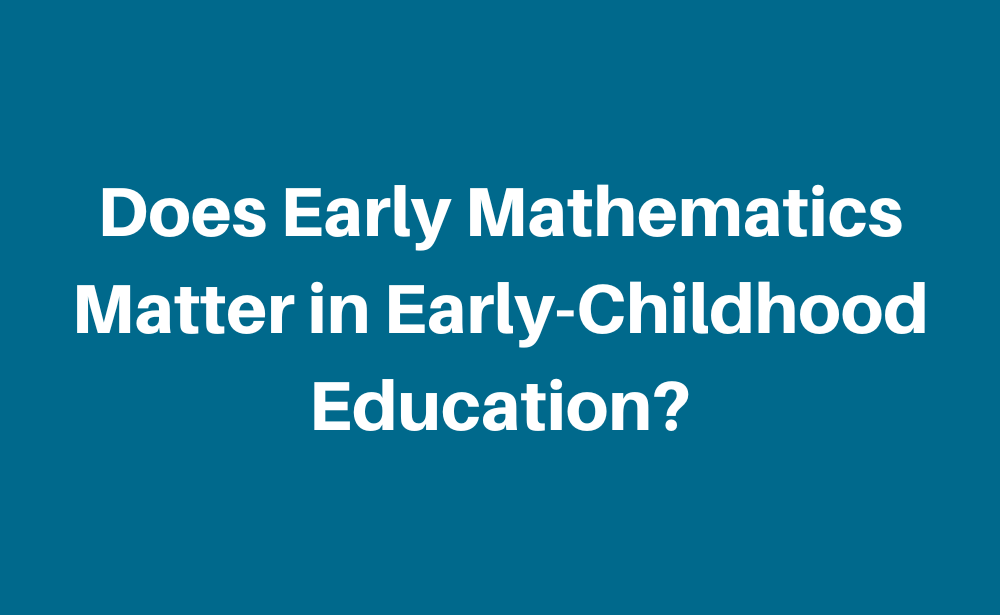Early childhood education is critically essential for a child’s development in the psychomotor, cognitive, and affective domains as their brain connections multiply rapidly during the first three years of life and continue growing for the following years. As such, it is vital to offer young children a quality, challenging and accessible early-mathematics education, especially between the age of three to six years. It serves as the foundation for future mathematics learning where they can apply the knowledge and skills obtained in the academic world and in everyday life.
We know that an adult’s daily activities involve numbers, counting, and measurements, such as buying food in a restaurant, drinking water, and checking the clock. But does early mathematics matter in early-childhood education?
It does matter indeed. Throughout the early years, young children get to explore and be enlightened by the mathematical dimensions of their world through numbers when they learn how to build blocks with different shapes and patterns, compare quantities of toys with their playmates, share food with their peers, observe the seven rainbow colours, and experience many more other mathematical adventures. Numbers allow young children to make sense of the world outside of books and the classroom and construct a solid base for later mathematical achievements.
Many parents and teachers struggle with teaching mathematics to young children either at home or in the classroom setting because of the resistance they receive as young children tend to get frustrated easily when they cannot comprehend numerical concepts and do not know how to accurately solve mathematical problems.
Consequently, the teaching approach to numbers is important to arouse young children’s enthusiasm for learning numerical concepts and skills. One fun way to direct children entering the mathematics world is through play. Because every child loves fun and games, parents and teachers need to develop engaging activities that will cultivate an interest in numbers.
What we do here in SEGi College Penang to get our students ready for the real classroom is to provide them with the right platform in collaboration with the industry to experience the early-mathematics teaching process. To develop the early-years practitioners’ skills in delivering mathematical knowledge to young learners, we conduct micro-teaching sessions in private preschools such as The House Penang and Melody Farlim to allow our students to engage with young children. Our students prepare their lesson plans which the respective subject teachers review to ensure that the level of understanding and activity is developmentally appropriate.
These micro-teaching sessions allow early-childhood-education students to obtain meaningful experiences and skills in dealing with the pre-schoolers. They can implement the lesson through interesting games such as hunting for shapes in the classroom and using interactive materials such as poms-poms to be stuck on the board according to the numbers. The reward system with young children also creates a better learning process. Thus, stickers and stationeries encourage active participation.
To achieve high-quality early-mathematics education for young children, teachers, key professionals, and parents should enhance young children’s natural interest in numbers and encourage their disposition to use them to make sense of their physical and social worlds through engaging teaching practices. The appropriate teaching and learning pedagogy will provide ample time, materials and adults’ support for children to engage in play through which they can explore and manipulate mathematical ideas with keen interest.

